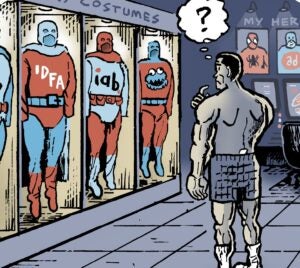The publisher-focused DOJ v. Google ad tech antitrust trial is finished. A judge will now decide the fate of Google’s sell-side ad tech business.
On Friday, both sides presented their closing arguments and fielded final questions from Judge Leonie Brinkema of the US District Court for the Eastern District of Virginia.
Even she can’t believe this odyssey is nearly over.
“I’m not sure it’s the last set of arguments,” Judge Brinkema joked to start the day.
Closing time
Neither set of closing arguments contained any major surprises.
The DOJ and Google outlined positions they’d already firmly established during the remedy trial phase in September. The DOJ maintains that a structural remedy is required, rather than just behavioral requirements that would impose policy changes but leave Google potential leeway to undermine the ruling’s impact.
From Google’s perspective, the DOJ’s argument “is all about trust,” said Karen Dunn, Google’s lawyer. The DOJ’s proposal, she argued, is filled with references to Google’s “impulses” and to how “creative minds” at Google might find new ways to maintain monopoly control. In essence, she said, the DOJ’s message is simply that Google can’t be trusted.
But has the DOJ proven that a full divestiture of AdX, Google’s ad exchange, is necessary to return fair competition to the sell-side of the ad tech market?
According to Google, no, obviously.
Dunn contended that the DOJ’s ambitious structural proposal falls short. During her hour and a half of arguments and rebuttals, she pointed repeatedly – roughly 20 times or more – to the Google Search antitrust trial, which publishers and ad tech execs criticized for its light behavioral remedy approach.
Trust (or the lack thereof)
To be fair, the DOJ does rest its case for divestiture at least in part on Google’s untrustworthiness.
The DOJ’s lawyers argue that Google is a “recidivist” offender that will likely keep following its financial incentives, even when that means breaking the law or defying the spirit of a court order.
For example, even if Google pinky swears not to favor its own pipeline between AdX and AdWords, it could still exclude Prebid demand by pointing to alleged inventory quality issues and brand safety standards.
This raises key questions about whether Google can be trusted to act fairly when incentives are misaligned. Like, for instance, would Google send slower bids or responses to Prebid compared to its own pipeline if given the chance?
The DOJ also highlighted that some of Google’s apparent concessions – such as internal documents showing that Google execs seriously considered the prospect of an AdX divestiture and deemed it feasible – were “hard-won” and that Google “fought tooth and nail” to keep them from being made public. Additionally, the DOJ noted that multiple judges have severely rebuked Google for its practice of deleting and suppressing damning evidence.
Google “will test every word, every punctuation” of a behavioral ruling, the DOJ warned, “whittling away” at its actual application until the punishment is essentially nil.
Beyond trust
But even if the DOJ has successfully convinced Judge Brinkema that Google is untrustworthy, she must consider the practical challenges of setting behavioral remedies.
During the DOJ’s closing arguments, she noted that, putting aside a potential divestiture, behavioral requirements – like a potential mandate to integrate with Prebid for open web display inventory – could be implemented even while a likely appeal by Google is underway.
“My concern is commercial reality,” she said. Considering the pace of innovation in ad tech and the potential reshaping of internet advertising by AI, “how quickly can any of this go into effect?” she asked.
“Timelines can be deceiving,” a DOJ attorney responded.
If Google is arguably able to push its engineers to do the work required to realize its proposed remedies, there’s no reason it can’t do the same for the DOJ’s proposal. And while a divestiture might seem like a bigger deal, the government believes that it’s actually the “cleaner, less risky solution” because at least it offers a clean break from Google’s control.
By contrast, the DOJ said, behavioral remedies would mean ongoing litigation, with a court-appointed monitor constantly having to track how Google is testing the wording of the law and the court’s willingness to enforce it.
Still, Judge Brinkema seemed dubious of the DOJ’s main contention and how to turn its broad call for a divestiture from something “at an abstract level” into a concrete ruling.
For instance, she pointed out that the question of who might buy AdX remains uncertain. A potential buyer like Microsoft would itself trigger a separate antitrust review. There is no potential acquirer ready to take over AdX that doesn’t come along with its own complications.
Regardless, Judge Brinkema seems resigned to the unpleasant reality that this case will not end with a settlement but must be decided by a new ruling, which will inevitably be appealed and argued again.
“I could see a settlement” that makes sense for this case, Judge Brinkema said. But with other “looming settlements” in big-money suits being filed by practically every major ad tech company on the sell side, bridging the gap between the two sides seems unlikely.
She and her team of clerks have already begun crafting a decision, she said, which she expects to release “maybe next year.”
Here’s hoping.
A DOJ attorney at one point during closing arguments referred to the need for quick and assertive action from the court, citing the giant bronze letters that span the building’s façade: “Justice Delayed Is Justice Denied.”

















